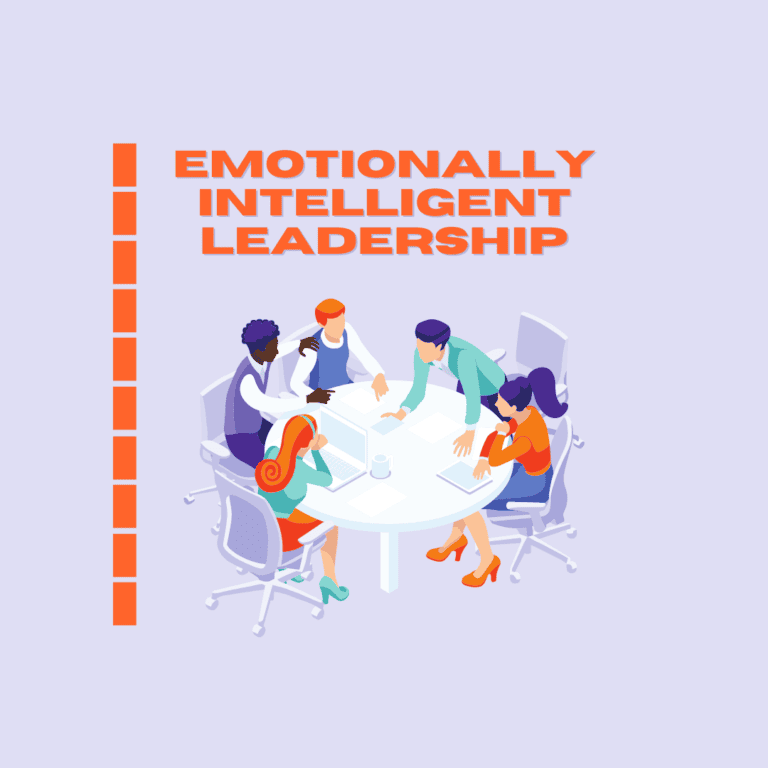Navigating Change With Emotional Agility
In a world that is constantly evolving, the ability to navigate change with emotional agility has become a crucial skill to thrive in both personal and professional domains. The concept of emotional agility encompasses the capacity to be adaptable, resilient, and mindful in the face of challenges and transitions.
As individuals, we are often confronted with unexpected changes and upheavals, and our ability to effectively manage our emotions and responses can greatly impact our overall well-being and success.
How can we cultivate this emotional agility to navigate change with grace and resilience?
Key Takeaways
- Emotional agility is crucial for navigating change effectively.
- Adapting coping strategies and embracing flexibility are important for resilience.
- Self-awareness and mindfulness practices enhance adaptability.
- Practicing self-compassion and acceptance helps in managing the emotional toll of change.
Understanding Emotional Agility
Understanding Emotional Agility is essential for effectively managing and adapting to the complexities of our emotions in the face of change. It encompasses the ability to be self-aware, to understand one's emotions, and to have the flexibility and adaptability to respond to them in a constructive manner.
This self-awareness allows individuals to recognize when their emotions are hindering their ability to navigate change, and empowers them to make conscious choices about how to respond. Emotional agility is not about suppressing emotions or putting on a facade of positivity, but rather about acknowledging the full spectrum of emotions and learning how to harness them to fuel resilience and growth.
Flexibility and adaptability are key components of emotional agility. These qualities enable individuals to pivot and adjust their emotional responses when faced with unexpected or challenging situations. By being open to the full range of emotions and understanding that they are transient, individuals can cultivate the resilience needed to navigate change effectively.
In essence, understanding emotional agility equips individuals with the tools to manage their emotions in a way that promotes growth and well-being.
Recognizing the Impact of Change
Adapting to change can take a significant emotional toll on individuals, impacting their well-being and productivity. Recognizing the impact of change is crucial for fostering resilience and emotional agility.
As we navigate the complexities of change, understanding how it affects us emotionally is fundamental to effectively managing and adapting to new circumstances.
Change's Emotional Toll
In the midst of change's emotional toll, individuals may find themselves grappling with a range of complex and often overwhelming feelings. This emotional stress can manifest in various ways, impacting a person's mental and physical well-being. To navigate this challenging terrain, individuals can employ effective coping strategies to manage the emotional toll of change:
- Self-awareness: Acknowledging and understanding one's emotions can provide clarity and insight into the impact of change.
- Emotional regulation: Developing techniques to manage intense emotions can help individuals maintain a sense of balance and stability during times of change.
- Seeking support: Engaging with a support system, such as friends, family, or professional counselors, can offer valuable emotional support and guidance.
- Adaptability: Cultivating a mindset of flexibility and adaptability can help individuals navigate change with resilience and resourcefulness.
Adapting to Change
The emotional toll of change underscores the necessity for individuals to recognize and adapt to its impact. Adapting to change requires the development of effective coping mechanisms and adapting strategies. Here are some key strategies and coping mechanisms that can help individuals navigate change more effectively:
| Adapting Strategies | Coping Mechanisms |
|---|---|
| Embracing flexibility | Practicing mindfulness |
| Setting realistic goals | Seeking social support |
| Emphasizing self-care | Engaging in physical activity |
| Cultivating a growth mindset | Journaling and self-reflection |
Building Resilience Through Mindset
Building resilience through mindset is crucial in navigating change.
A positive mindset can significantly boost resilience, helping individuals bounce back from challenges and setbacks.
Embracing a growth mindset fosters resilience by promoting a belief in one's ability to learn and adapt.
Flexibility enhances resilience by enabling individuals to adjust and thrive in the face of change.
Positive Mindset Boosts Resilience
When faced with adversity, individuals who cultivate a positive mindset demonstrate heightened resilience in navigating and overcoming challenges. This positive mindset is essential for building resilience and adapting to change. Here are four key ways in which a positive mindset boosts resilience:
- Optimism: A positive mindset fosters optimism, enabling individuals to maintain hope and confidence in the face of adversity.
- Solution-Oriented Thinking: It encourages a focus on finding solutions rather than dwelling on problems, leading to proactive problem-solving.
- Emotional Regulation: A positive mindset helps individuals regulate their emotions effectively, reducing stress and enhancing resilience.
- Growth Mindset: It promotes a belief in one's ability to learn and grow from challenges, fostering adaptability and resilience in the face of change.
Cultivating a positive mindset is a powerful tool for building resilience and navigating change with emotional agility.
Growth Mindset Fosters Resilience
How does a growth mindset contribute to enhancing resilience in individuals facing challenges and change?
Mindset development plays a crucial role in fostering resilience and promoting emotional well-being.
Embracing a growth mindset involves a mindset shift from viewing challenges as obstacles to seeing them as opportunities for learning and growth.
Individuals with a growth mindset are more likely to persevere in the face of adversity, viewing setbacks as temporary and a chance to develop new skills.
This resilience building is grounded in the belief that abilities and intelligence can be developed, leading to a more adaptive response to change.
As a result, individuals with a growth mindset are better equipped to navigate challenges, bounce back from failures, and maintain a positive outlook, ultimately fostering greater emotional well-being.
Flexibility Enhances Resilience
Flexibility is a key component in enhancing resilience through mindset, allowing individuals to adapt and respond effectively to challenges and change. When considering the role of flexibility in building resilience, it is essential to understand the impact it has on an individual's ability to navigate through adversity.
Here are four ways flexibility enhances resilience:
- Adapting coping strategies: Flexibility enables individuals to adjust their coping strategies based on the specific demands of a situation, fostering a more adaptive and resilient response.
- Embracing change: Flexibility allows individuals to embrace change with a more open mindset, fostering resilience in the face of uncertainty and unpredictability.
- Maintaining emotional balance: Flexibility helps individuals maintain emotional balance amidst challenges, enabling them to respond to adversity with greater resilience.
- Building problem-solving skills: Flexibility enhances individuals' problem-solving skills, enabling them to approach challenges with a more adaptable and resilient mindset.
Cultivating Self-Awareness and Adaptability
Cultivating a deep sense of self-awareness and adaptability is essential for navigating change with emotional agility.
Self-reflection allows individuals to gain insight into their thoughts, emotions, and behaviors, enabling them to adapt more effectively to changing circumstances.
By fostering adaptability, individuals can develop the capacity to adjust their responses and actions in alignment with their goals and values.
Emotional regulation plays a crucial role in this process, as it empowers individuals to manage their emotions in a way that supports their adaptability and overall well-being.
Mindfulness practices further enhance self-awareness by encouraging individuals to stay present in the moment, observe their thoughts and feelings without judgment, and make conscious choices about how to respond to the challenges of change.
This heightened self-awareness and adaptability enable individuals to navigate transitions with greater ease and resilience, fostering emotional agility in the face of uncertainty.
Harnessing Emotional Intelligence
An individual's capacity to harness emotional intelligence is pivotal in effectively navigating change with emotional agility. To achieve this, one must focus on:
- Emotional Regulation: Being able to recognize and manage one's emotions is essential for adapting to change. By understanding and regulating their emotions, individuals can approach challenges with a clear and rational mindset, enabling them to make well-informed decisions.
- Self-Awareness: Developing a deep understanding of one's emotions, strengths, and limitations is crucial for harnessing emotional intelligence. This self-awareness allows individuals to recognize how they react to change and empowers them to proactively manage their responses.
- Stress Management: Emotionally intelligent individuals are adept at managing stress during times of change. They can effectively cope with pressure, remain resilient, and maintain their focus and productivity even in turbulent circumstances.
- Empathy: An essential aspect of emotional intelligence, empathy enables individuals to understand and relate to the emotions of others. By empathizing with colleagues and stakeholders, individuals can build stronger relationships, foster collaboration, and navigate change more effectively.
Embracing Uncertainty and Growth
Navigating through periods of uncertainty and embracing opportunities for growth requires a mindset that is open to change and adaptable to evolving circumstances. Embracing discomfort and uncertainty can be challenging, but it is essential for personal growth. In uncertain circumstances, individuals often feel a sense of discomfort as they confront the unknown and navigate through unfamiliar territory. However, it is within these moments of discomfort that the greatest potential for personal growth lies.
Embracing change and uncertainty allows individuals to develop resilience, adaptability, and a deeper understanding of themselves.
Embracing discomfort is a vital aspect of personal growth. It involves stepping out of the comfort zone, confronting fears, and challenging oneself to explore new possibilities. Embracing change is an integral part of this process, as it enables individuals to adapt and thrive in ever-changing environments. Uncertain circumstances provide opportunities for individuals to cultivate new skills, perspectives, and strengths that contribute to their overall personal and professional development.
Ultimately, embracing uncertainty and growth fosters a mindset of resilience and agility, empowering individuals to navigate change with confidence.
Practicing Self-Compassion and Acceptance
Practicing self-compassion and acceptance fosters emotional resilience and empowers individuals to navigate through challenging circumstances with grace and understanding. This practice involves acknowledging one's own pain and suffering with kindness and understanding, rather than self-criticism.
Here's how individuals can cultivate self-compassion and acceptance:
- Mindfulness Practice: Engaging in mindfulness activities such as meditation, deep breathing, or yoga can help individuals become more aware of their thoughts and feelings without judgment. This heightened awareness can lead to greater self-compassion and acceptance.
- Self-Kindness: Being gentle and understanding with oneself in times of struggle is essential for fostering self-compassion. Instead of harsh self-criticism, individuals can practice speaking to themselves with the same kindness and encouragement they would offer to a friend in a similar situation.
- Common Humanity: Recognizing that everyone experiences hardship and challenges can help individuals feel more connected to others. Understanding that suffering is a universal human experience can reduce feelings of isolation and increase self-compassion.
- Acceptance: Embracing one's emotions and experiences without judgment is at the core of self-compassion and acceptance. This involves acknowledging difficult feelings and circumstances with openness and understanding, rather than resistance or avoidance.
Applying Emotional Agility in Daily Life
Embracing emotional agility in daily life enables individuals to effectively navigate the complexities of their emotions and adapt to the ever-changing circumstances they encounter. Applying mindfulness is a key aspect of emotional agility, allowing individuals to stay present and aware of their emotions without becoming overwhelmed by them. Mindfulness practices such as meditation and deep breathing can help individuals manage stress and maintain emotional regulation. By cultivating mindfulness, individuals can develop a greater sense of self-awareness and the ability to respond to their emotions in a balanced and constructive manner.
In addition to mindfulness, self-care is essential for applying emotional agility in daily life. Engaging in activities that promote self-care, such as exercise, spending time in nature, or pursuing hobbies, can help individuals regulate their emotions and reduce stress. Prioritizing self-care allows individuals to recharge and build emotional resilience, enabling them to navigate daily challenges with greater ease.
Conclusion
In conclusion, emotional agility is a crucial skill for navigating change and fostering resilience.
Research shows that 90% of people experience significant stress due to change, highlighting the importance of developing emotional agility to manage the impact of change effectively.
By cultivating self-awareness, adaptability, and emotional intelligence, individuals can embrace uncertainty, practice self-compassion, and apply emotional agility in their daily lives to thrive in the face of change.






